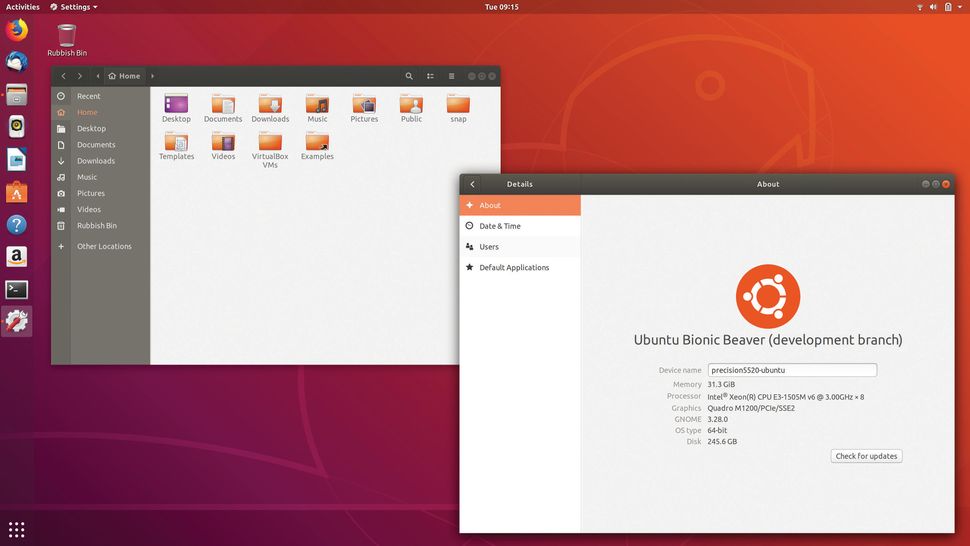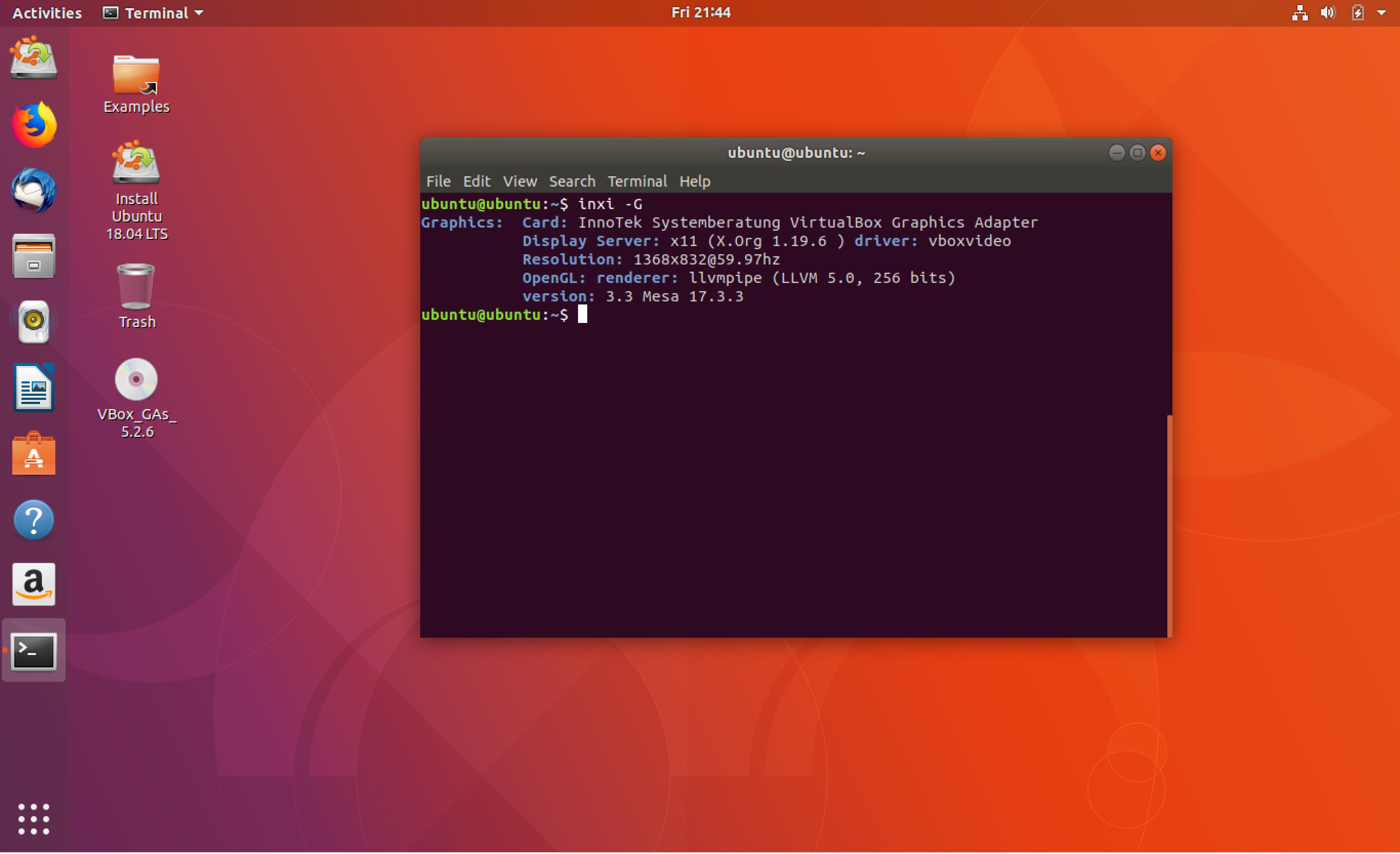

- #Ubuntu 18.04 lts drivers#
- #Ubuntu 18.04 lts software#
- #Ubuntu 18.04 lts series#
- #Ubuntu 18.04 lts download#
- #Ubuntu 18.04 lts free#
Features Ī default installation of Ubuntu contains a wide range of software that includes LibreOffice, Firefox, Thunderbird, Transmission, and several lightweight games such as Sudoku and Mines. select 32-bit i386 packages for Ubuntu 19.10 and 20.04 LTS. It was decided to support " legacy software", i.e. ģ2-bit x86 processors were supported up to Ubuntu 18.04. On 12 March 2009, Ubuntu announced developer support for third-party cloud management platforms, such as those used at Amazon EC2. Mark Shuttleworth describes the foundation goal as to ensure the continuity of the Ubuntu project.

The purpose of the foundation is to ensure the support and development for all future versions of Ubuntu. On 8 July 2005, Mark Shuttleworth and Canonical announced the creation of the Ubuntu Foundation and provided initial funding of US$10 million. Ubuntu is currently funded by Canonical Ltd. One month before release, imports are frozen, and packagers then work to ensure that the frozen features interoperate well together. Before release, packages are imported from Debian unstable continuously and merged with Ubuntu-specific modifications. Ian Murdock, the founder of Debian, had expressed concern about Ubuntu packages potentially diverging too far from Debian to remain compatible. Ubuntu cooperates with Debian by pushing changes back to Debian, although there has been criticism that this does not happen often enough. Many Ubuntu developers are also maintainers of key packages within Debian. Debian and Ubuntu packages are not necessarily binary compatible with each other, however, so packages may need to be rebuilt from source to be used in Ubuntu. Both distributions use Debian's deb package format and package management tools (e.g.

Ubuntu packages are based on packages from Debian's unstable branch, which are synchronised every six months.
#Ubuntu 18.04 lts series#
LTS releases get regular point releases with support for new hardware and integration of all the updates published in that series to date. The first LTS releases were supported for three years on the desktop and five years on the server since Ubuntu 12.04 LTS, desktop support for LTS releases was increased to five years as well. Long-term support includes updates for new hardware, security patches and updates to the 'Ubuntu stack' (cloud computing infrastructure). Since the release of Ubuntu 6.06, every fourth release receives long-term support. Ĭurrent long-term support (LTS) releases are supported for five years, and are released every two years.
#Ubuntu 18.04 lts free#
Ubuntu releases updated versions predictably every six months, and each release receives free support for nine months (eighteen months prior to 13.04) with security fixes, high-impact bug fixes and conservative, substantially beneficial low-risk bug fixes. Ubuntu is built on Debian's architecture and infrastructure, and comprises Linux server, desktop and discontinued phone and tablet operating system versions.

Ubuntu is named after the Nguni philosophy of ubuntu, which Canonical indicates means "humanity to others" with a connotation of "I am what I am because of who we all are".
#Ubuntu 18.04 lts download#
Canonical generates revenue through the sale of premium services related to Ubuntu and donations from those who download the Ubuntu software. Canonical provides security updates and support for each Ubuntu release, starting from the release date until the release reaches its designated end-of-life (EOL) date. Ubuntu is developed by the British company Canonical, and a community of other developers, under a meritocratic governance model. As of April 2023, the most-recent release is 23.04 ("Lunar Lobster"), and the current long-term support release is 22.04 ("Jammy Jellyfish"). Ubuntu is released every six months, with long-term support (LTS) releases every two years. Ubuntu's default desktop changed back from the in-house Unity to GNOME after nearly 6.5 years in 2017 upon the release of version 17.10. Ubuntu is a popular operating system for cloud computing, with support for OpenStack. All of the editions can run on a computer alone, or in a virtual machine. Ubuntu is officially released in multiple editions: Desktop, Server, and Core for Internet of things devices and robots. Ubuntu ( / ʊ ˈ b ʊ n t uː/ i uu- BUUN-too) is a Linux distribution based on Debian and composed mostly of free and open-source software.
#Ubuntu 18.04 lts drivers#
Free software + some proprietary device drivers


 0 kommentar(er)
0 kommentar(er)
